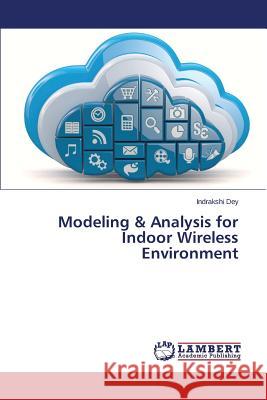Modeling & Analysis for Indoor Wireless Environment » książka
Modeling & Analysis for Indoor Wireless Environment
ISBN-13: 9783659326202 / Angielski / Miękka / 2015 / 148 str.
In an indoor radio frequency (RF) communication channel, small scale fading can vary the local average power of the received signal, between points as close as a fraction of a wavelength apart. At the same time, the presence of obstacles and motion of scatterers around low-level portable antennas, give rise to rapid and sharp changes in the mean signal level. Hence, large scale shadowing in indoor wireless environment, has a correlation distance of around 1 - 2 m. In such a scenario, large scale shadowing can vary the local mean of the received signal envelope, between points separated by only few wavelengths. As a result, the time scale of indoor large scale variations begin to approach that of small scale fading, and the wireless channel suffers from combined small and large scale effects. The primary focus of this book is to present the measurement campaign and the methods used to develop the first ever channel model to characterize the above-mentioned propagation scenario, using the collected measurement data.











